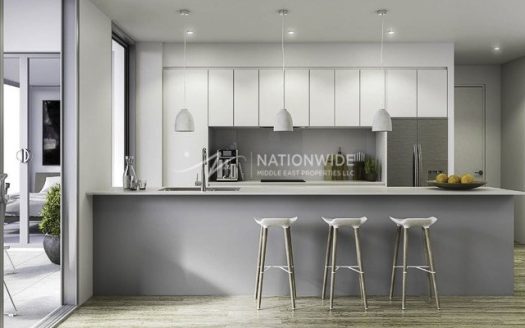Should You Buy or Rent in Dubai? Your Path to a Smart Decision

Deciding whether to buy or rent property in Dubai, especially when eyeing luxurious villas in Dubai, can feel like standing at a crossroads with no map. The stakes are high—your financial future, lifestyle, and peace of mind hang in the balance. Should you invest in a home or opt for the flexibility of renting? What costs are lurking beneath the surface? Can you even buy as a foreigner, and what returns can you expect? These questions, swirling with uncertainty, often leave expats and investors paralyzed, unsure of the best move. This article cuts through the noise, addressing the top concerns about buy property in Dubai and rent property in Dubai, arming you with clear steps, hard numbers, and practical solutions to choose wisely.
Weighing the Big Question: Buy or Rent?
The decision to buy or rent property in Dubai looms large for anyone stepping into the city’s real estate market. Many grapple with this choice, torn between the stability of ownership and the freedom of renting. Renting offers flexibility—perfect for those unsure of their long-term plans—while buying promises potential appreciation in a booming market. The wrong move can lock you into a costly commitment or leave you missing out on investment gains, and the stakes feel even higher in a city known for its rapid growth and high living costs.
Let’s break it down with numbers. Renting a two-bedroom apartment in a prime area like Downtown might cost $30,000 annually, per 2024 market reports from Bayut. Over 10 years, that’s $300,000 with no equity to show for it. Buying a similar property, say for $400,000, involves upfront costs but could appreciate by 5% annually, adding $20,000 to its value each year. By year 10, your property might be worth $650,000—a $250,000 gain, minus fees. Renting, however, lets you avoid maintenance costs, which for owners can hit $5,000 yearly on average, and sidestep market risks if prices dip.
Consider your timeline and goals. If you’re staying less than 5 years, renting often makes more sense—your $30,000 annual rent avoids the $16,000 in transfer fees (4% of $400,000) you’d pay when buying. For longer stays, buying builds wealth, especially in high-demand areas. A quick detour: areas like Dubai Marina saw a 15% price increase in 2024, making ownership there particularly lucrative. Back to the choice—calculate your break-even point by comparing total rental costs over your stay against buying costs plus appreciation.
Start today by mapping out your stay in Dubai and running these numbers. Use a simple spreadsheet to compare 5- and 10-year scenarios, factoring in rent hikes (typically 5% annually) and property growth. This clarity will guide you to the smarter path, whether it’s signing a lease or shaking hands on a purchase.
Unpacking the Full Cost of Buying

When you decide to buy property in Dubai, the sticker price is just the beginning. Hidden costs can ambush even the savviest buyers, turning a dream purchase into a budget nightmare. Transfer fees, agent commissions, and ongoing charges pile up quickly, and many buyers—especially first-timers—underestimate the total hit. Knowing the full scope upfront lets you plan with precision and avoid financial strain.
For a $400,000 apartment, the purchase price is only part of the equation. You’ll pay a 4% transfer fee, which is $16,000, plus a 2% agent commission, adding $8,000. Registration fees hover around $1,200, and if you’re financing, mortgage arrangement fees can tack on another $2,000. Annual service charges, often overlooked, average $5,000 for a mid-range property in 2024, per Property Finder’s market analysis. That’s $32,200 in first-year costs on top of the $400,000 price—a 8% increase over the base cost. Over 5 years, with service charges, you’re looking at an additional $25,000.
These numbers can feel like a punch, especially if you’re coming from a market where buyers face fewer upfront fees. But there’s a way to manage them. Negotiate with the seller to cover the agent commission, potentially saving you $8,000. Opt for properties in newer developments with lower service fees—some buildings in Jumeirah Village Circle charge as little as $3,000 annually. If you’re financing, shop around for banks with lower mortgage fees; some offer rates as low as 0.5% of the loan amount. For official guidance, the Real Estate Regulatory Agency (RERA) at https://www.rera.gov.ae/en provides detailed fee structures.
Take control now: before signing any agreement, request a full cost breakdown from your agent and cross-check with RERA’s guidelines. Add these to your budget, and explore negotiation options with the seller. This preparation ensures you’re not blindsided, keeping your finances intact while securing your new home.
Navigating Rental Lease Terms
Renting in Dubai offers flexibility, but the lease terms can feel like a puzzle. Many prospective tenants, especially newcomers, struggle to understand their obligations, renewal conditions, and hidden costs within the contract. A poorly understood lease can lead to unexpected fees, disputes with landlords, or even eviction, leaving renters stressed and financially strained. Clarity on these terms, however, sets you up for a smooth tenancy.
Standard leases in Dubai are annual, with rent typically paid in 1-4 cheques. A $30,000 annual lease might require two $15,000 payments, plus a 5% security deposit—$1,500—refundable at the end if no damages occur. Agent fees, often 5% of the rent, add another $1,500. Rent increases are capped at 20% upon renewal, based on RERA’s 2024 rental index, but only if the landlord gives 90 days’ notice. Early termination usually requires 60 days’ notice and may cost 2 months’ rent as a penalty—$5,000 in this case.
Here’s where it gets tricky: some landlords include clauses for maintenance responsibilities, which can cost you $1,000 yearly if not negotiated out. Others might demand post-dated cheques for the full year upfront, a practice that ties up your cash flow. To protect yourself, review the contract with a fine-tooth comb. Ensure the Ejari registration—a mandatory online contract record costing $60—is completed, as it legalizes your tenancy. Negotiate terms like maintenance or smaller cheque splits to ease the burden.
Act now: before signing, ask your landlord to clarify renewal terms, maintenance duties, and cheque requirements. Have the contract reviewed by a friend familiar with Dubai’s rental market, and confirm Ejari registration is done. This diligence saves you thousands in penalties and ensures a stress-free rental experience.
Can Foreigners Buy, and What Are the Rules?

The question of whether foreigners can buy property in Dubai often sparks anxiety for international investors. Many worry about eligibility, legal restrictions, or whether ownership comes with residency perks. Missteps here can lead to rejected purchases or missed opportunities, especially for those eyeing property as a visa pathway. Understanding the rules clears the fog, making the process straightforward.
Foreigners can indeed buy property in Dubai, but only in designated freehold areas like Dubai Marina, Downtown, and Palm Jumeirah. A U.S. citizen, for example, can purchase a $400,000 apartment in Dubai Marina with no restrictions, provided they have a valid passport. Properties over $204,000 qualify for a 2-year renewable residency visa, per RERA’s 2024 guidelines, extendable if you retain ownership. Non-freehold areas, however, are off-limits—only UAE nationals can buy there. You’ll also need a No Objection Certificate (NOC) from the developer, costing $150-$300, to finalize the sale.
A quick note: the visa perk is a game-changer. A $500,000 villa in Arabian Ranches not only secures residency but also positions you in a family-friendly community near the Dubai Polo & Equestrian Club, open 7:00 AM to 8:00 PM, offering riding lessons, polo matches, and dining at the Equestrian Café. Back to the rules—financing as a foreigner is possible, but banks often require a 20% down payment ($80,000 on that $400,000 apartment) and charge higher interest rates, around 4.5% annually, compared to 3% for residents.
Don’t let uncertainty stop you. Confirm the property is in a freehold zone by checking RERA’s online map, and verify visa eligibility with your purchase amount. If financing, compare loan terms from multiple banks to secure the best rate. Start this week by researching freehold properties and their visa benefits, ensuring your investment aligns with your residency goals.
What Returns Can You Expect from Buying?
Investors often hesitate to buy property in Dubai without knowing the potential return on investment (ROI). The fear of low returns or market slumps can freeze decision-making, especially when comparing Dubai to other global hubs. Knowing the ROI potential, however, turns hesitation into action, letting you invest with confidence in a city known for its real estate growth.
In 2024, Dubai’s ROI for residential properties averaged 6.5%, per Property Finder’s annual report, outpacing many global cities like New York (4%) or London (3.5%). A $400,000 apartment in Dubai Marina might yield $26,000 annually in rental income at this rate, plus 5% appreciation ($20,000) in a strong year, totaling a $46,000 return. Compare that to renting out a similar property in Miami, where ROI hovers at 5% ($20,000), with less appreciation. Maintenance costs, around $5,000 yearly, and service fees ($4,000) eat into this, leaving a net ROI of 4.25%—still competitive.
Market trends matter. Areas like Business Bay saw a 7% ROI in 2024, driven by demand for furnished rentals near offices, while off-plan properties from developers like Emaar Properties offer 8% yields but with higher risk. Emaar, founded in 1997 by Mohamed Alabbar, is a state-backed giant known for projects like Burj Khalifa; it reported $7.1 billion in revenue in 2023, with a focus on sustainable designs. Timing your purchase—say, during a pre-launch phase—can lock in lower prices, boosting returns by 10% upon completion.
Act today: research high-ROI areas like Business Bay, and calculate potential returns using 2024 rental yields and appreciation rates. Factor in all costs, and target off-plan deals for higher gains. This approach ensures your investment maximizes profit, whether you’re in it for rental income or long-term growth.
Sealing the Decision with Clarity
The choice to buy or rent property in Dubai doesn’t have to be a gamble. Whether you’re drawn to ownership’s long-term gains or renting’s flexibility, understanding costs, lease terms, ownership rules, and ROI potential lights the way. Buying a $400,000 property could net you $46,000 annually in returns, while renting saves you $32,200 in upfront costs. Foreigners can buy in freehold zones, and leases, though binding, are manageable with careful review.
Your next step is simple: run the numbers for your specific situation, check RERA’s resources for legal clarity, and work with a trusted agency like Anika Property to navigate the process. Start now by deciding your timeline and financial goals—then take action to secure your Dubai home or rental with confidence.





